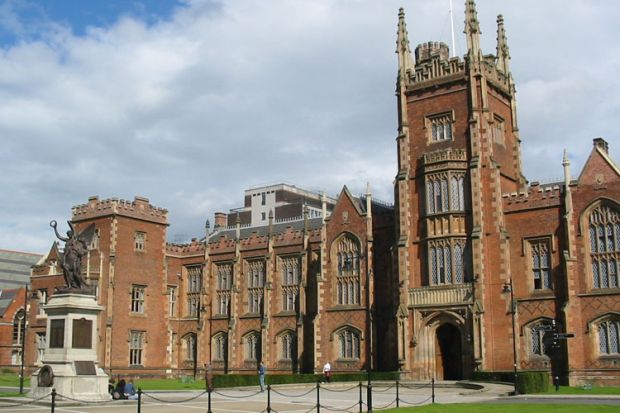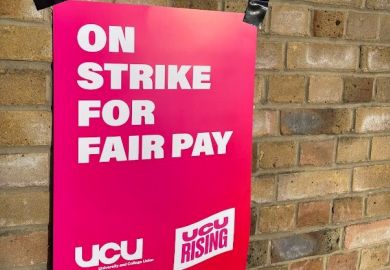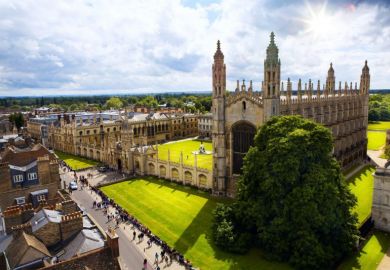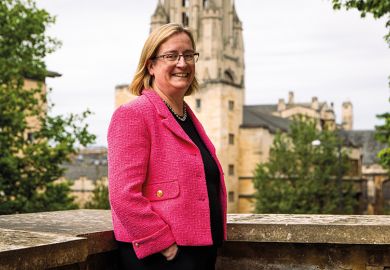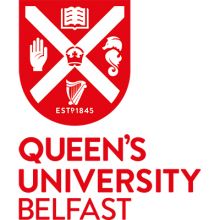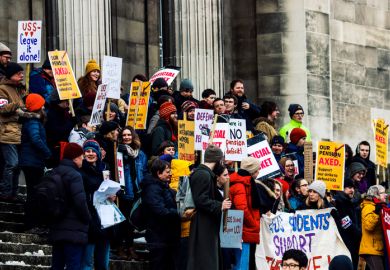Academics at Queen’s University Belfast have agreed to start marking students’ work again after negotiating a deal with university management.
The branch has become the first involved in the pay and working conditions dispute to resume all assessment duties, despite the current impasse in the national negotiations.
About 750 students at Queen’s had been due to graduate without receiving their final degree mark because of the boycott. Earlier, 10 students who had received their results were then told they were being withdrawn, with the university blaming “human error at an extremely challenging and difficult time”, BBC News reported.
As part of the settlement, all students’ work will be marked by 7 August to allow exam boards to finalise results by the end of the summer, the two parties said in a statement.
“This local outcome is the result of several weeks of intensive work between the two sides and means that those students affected will receive their classification as a matter of urgency,” it added.
Staff are to be given a cost-of-living supplement worth 2 per cent of pay, applied to all except those in senior positions.
This will take effect from 1 September and the university said it would “not be obliged to make further payments” if UCU and employer body the Universities and Colleges Employers Association (Ucea) agree a further national pay offer unless this exceeds 7 per cent in total.
The agreement also includes proposals on addressing fixed-term contracts and the development of a strategy to address gender, race and disability pay gaps.
Sir Ian Greer, vice-chancellor at Queen’s said: “Clearly this has been a very difficult time for our students, we regret the distress caused at what should be a celebratory time, and we hope that this provides assurance that the issue will now be addressed.
“We are disappointed that this could not have been resolved ahead of graduations during which around 750 students will receive their degrees without classifications, but we are committed to providing an additional full graduation ceremony for them and further details will be provided in the near future.”
Sir Ian added that the funding model for Northern Ireland’s universities was “not sustainable”, something he said was “at the heart of the dispute”.
“I am keen to secure a model that will allow the sector to improve staff conditions and which is also fair to students but that can’t be resolved quickly,” he added.
“In the meantime, this is a UK-wide dispute and while we have resolved it as far as we can locally, we fully support our colleagues’ right to take industrial action and I am calling on renewed focus to reach an overarching agreement across the board.”
Queen’s was one of several universities to have urged UCU and Ucea to return to the negotiating table to resolve the impasse but both sides have been stuck in a deadlock for months, with employers insisting the marking boycott has to end before talks restart – something UCU has refused to do.
A single branch deciding to end its boycott will prove controversial to some in the union, which last year secured a mandate to collectively take national action across 145 universities.
Sean O’Connell, chair of the UCU branch at Queen’s said: “Our members are fully aware of and deeply regret the impact the recent action has had on our students and we are pleased that we have reached an agreement to enable them to receive their exam results.
“This dispute is not just about pay and we are pleased that the university has also reached agreement with us on making progress in relation to casualisation, stress-related work pressures and other issues that will now also be addressed.
“We welcome the fact that locally, Queen’s had recognised the challenges that we have been raising and we now call on the University and Colleges Employers Association to follow the lead and get back around the table to resolve the national dispute.”
Reacting to the news, Raj Jethwa, Ucea’s chief executive, said the union had been “putting pressure on individual institutions, but that doesn’t mean that collectively the sector can afford any more for the concluded 2023-24 pay uplift”. He added that the financial state of the sector had not improved and many institutions were already having to delay the rise due to financial pressures.
Jo Grady, UCU's general secretary, said that “only a UK-wide settlement will bring an end to the ongoing industrial action, or any future bouts which UCU may be forced to call” but claimed the situation as Queen’s “demonstrates that more and more individual institutions are now refusing to follow the diktat of Ucea.”
Register to continue
Why register?
- Registration is free and only takes a moment
- Once registered, you can read 3 articles a month
- Sign up for our newsletter
Subscribe
Or subscribe for unlimited access to:
- Unlimited access to news, views, insights & reviews
- Digital editions
- Digital access to THE’s university and college rankings analysis
Already registered or a current subscriber?
